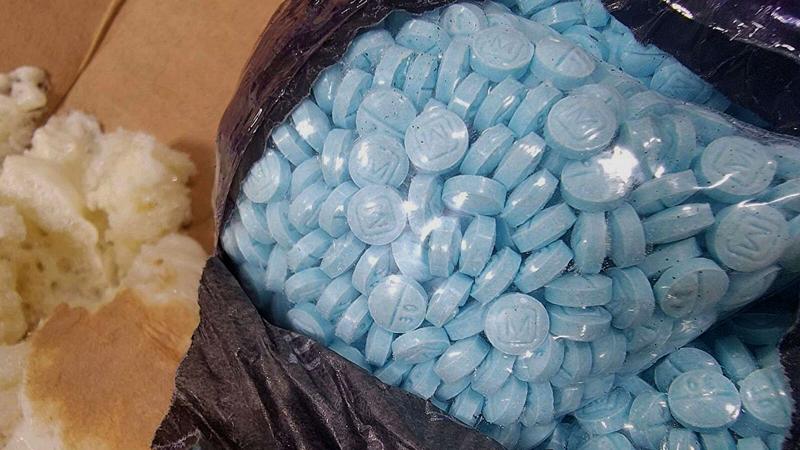A federal agency is warning consumers about using illegal online pharmacies after an increase in sales of counterfeit pills made with fentanyl and methamphetamine.
The warning comes after the death of one person who bought what she thought was oxycodone but died of fentanyl poisoning.
The U.S. Drug Enforcement Administration reported an increase in illegal online pharmacies selling and shipping counterfeit pills made with fentanyl and methamphetamine to unsuspecting customers in the United States. The customers thought they were buying real pharmaceutical drugs such as oxycodone, Adderall, Xanax and other drugs from legitimate pharmacies.
The increase comes as more Americans turn to online pharmacies to buy medications.
The agency issued a Public Safety Alert to warn of an increase in illegal online, often foreign-based websites that are targeting American consumers.
The DEA has identified websites being operated in India and the Dominican Republic.
“Many of these sites purport to be legitimate, U.S. based or FDA approved sites, but are actually working with drug traffickers to fulfill online orders with fake pills,” according to the agency. “These website operators are going to great lengths to make the websites look like legitimate online pharmacies – they offer 24-hour customer service, post online reviews and safety facts, and offer deep discounts to deceive customers into believing they were buying from a reputable business.”
DEA officials said these illegal websites often appear professional.
“These companies operate illegally, deliberately deceiving American customers into believing they are purchasing safe, regulated medications when they are actually selling fake, counterfeit pills made with fentanyl or methamphetamine,” according to the agency. “Fake medications can lead to serious health risks, including harmful side effects, ineffective treatment, and even death.”
One U.S. based buyer had ordered what she believed to be oxycodone from an online pharmacy. Instead, she got fake pills made with fentanyl. Fentanyl is more powerful than oxycodone.
“The pill looked identical to a real oxycodone, but it was not – it was made with fentanyl and filler,” according to the DEA. “Days after receiving the medication, the victim passed away from acute fentanyl poisoning as a result of taking one of the pills sent to her.”
The agency identified nine fake pharmacies in a recent criminal investigation. The sites included: Curecog.com, Pharmacystoresonline.com, Careonlinestore.com, yourphamacy.online, MD724.com, Greenleafdispensarystore.com, Whatishydrocodone.weebly.com, Orderpainkillersonline.com and USAMedstores.com.
DEA also offered tips and red flags to look for to avoid fake pharmacies:
Sells prescription drugs without requiring a valid prescription from a healthcare providerOffers much cheaper prices than what is typically seen in the marketLists prices in a foreign currencyDoes not contain proof of a valid pharmacy state license or DEA registrationMedicine arrives in broken or damaged packaging or in a foreign languageMedicine does not have an expiration date or is expiredMedicine looks different from what you have received in the past from your trusted pharmacist
The Centers for Disease Control and Prevention’s provisional estimated overdose deaths in 2023 declined about 3.1% to 107,543. That’s down from 111,029 in 2022. Two out of every three deaths involved synthetic opioids such as fentanyl, a cheap and potent opioid smuggled into the U.S. from Mexico.
The pills are often made with precursor chemicals from China.
The DEA’s most recent National Drug Threat Assessment found the purity level of illicit fentanyl in the U.S. drug market has increased and the amount of fentanyl found in counterfeit prescription pills has increased, making the nation’s top drug threat even more dangerous.
A lethal dose of the potent opioid is about 2 milligrams, depending on the opioid tolerance of the user.
In 2022, the average fentanyl pill contained 2.4 milligrams of fentanyl, according to analysis by DEA forensic chemists who test random samples of the fentanyl seized in the U.S. Overall, the tested samples ranged from a low of .03 milligrams to a high of 9 milligrams.






